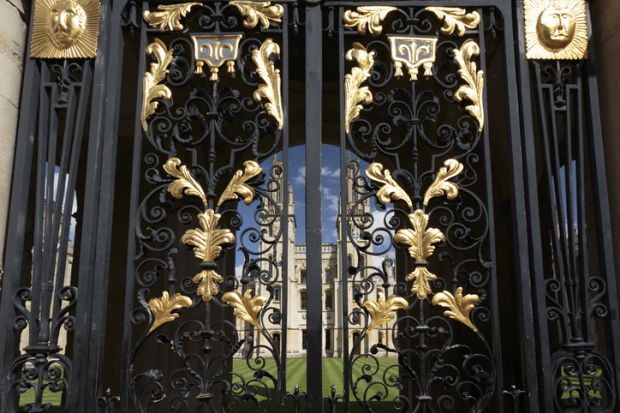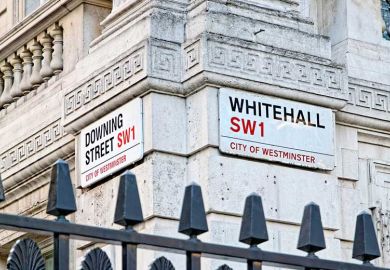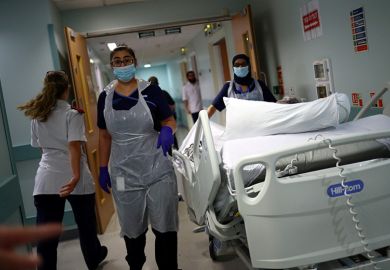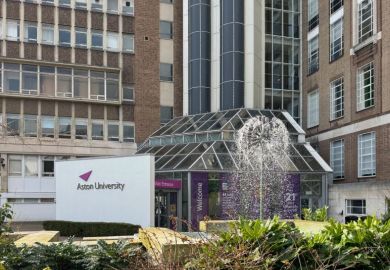Only the highest-performing UK universities should be allowed to sponsor international students and receive public subsidies for all their courses, with other institutions “repurposed” to offer skills training, according to a new report.
The thinktank Onward has proposed a radical restructuring of the UK’s higher education sector in a paper co-authored by former Downing Street chief of staff Nick Timothy and endorsed by former education secretary Michael Gove.
As part of a wider vision aimed at ending Britain's “economic malaise”, the organisation suggests the “number of HE institutions with the ability to issue visas should be reduced, with only the highest-performing institutions (measured by Ucas tariff) able to sponsor foreign students”.
Only those studying funded PhDs at qualifying institutions should be able to bring dependants, it adds, and the graduate visa should be abolished, with international graduates instead encouraged to apply for visas post-study under the skilled worker routes.
In a sign of the thinking among some parts of the Conservative Party ahead of the highly anticipated release of the Migration Advisory Committee report on the graduate visa route – expected by 14 May – the report recommends the changes as a way of reducing the number of student visas issued, which would in turn bring down net migration to a “sustainable level”.
International student recruitment has become embroiled in the wider debate about immigration in the UK, with a ban on master’s students bringing dependants that came in earlier this year being blamed in part for a downturn in international student recruitment this year, fuelling a round of cost-cutting across the sector.
In a further sign that the issue of international student numbers is set for further scrutiny ahead of a general election that has to happen before January 2025, the Daily Mail reported leaked Home Office figures that it said showed 6,136 people in the UK on student visas lodged asylum claims in the 12 months to March 2023, a four-fold increase on the previous year.
Onward’s report says that “post-18 education should be reformed so universities and colleges are not dependent upon overseas students for income”.
Part of this shake-up would see a “much greater emphasis on technical, vocational and applied education, with more public funding for apprenticeships”.
The report highlights that the quality of an institution is reflected in the statistics for lifetime earnings prospects for graduates and, while those attending high-quality universities might see improved career prospects “even if less economically valuable subjects are studied, it is less clear that studying an economically less valuable subject at a lower-quality institution improves graduate outcomes”.
It recommends that only universities with high Ucas tariffs be allowed to continue receiving public subsidies for all courses via the student loan system and “lower-quality universities should be reformed into technical and vocational institutes offering only courses with added value”.
The authors recognise universities’ independence when it comes to deciding what courses to offer and says therefore that the government should not “underwrite loans or provide public funding for ineligible courses”.
Research funding should also be reformed, the thinktank says, so that it is “targeted rigorously at technologies with applied potential to drive economic growth”.
Universities should be linked to local businesses via “catapult centres”, it continues, modelled on international examples such as Germany’s Fraunhofer Institutes.
Register to continue
Why register?
- Registration is free and only takes a moment
- Once registered, you can read 3 articles a month
- Sign up for our newsletter
Subscribe
Or subscribe for unlimited access to:
- Unlimited access to news, views, insights & reviews
- Digital editions
- Digital access to THE’s university and college rankings analysis
Already registered or a current subscriber?








